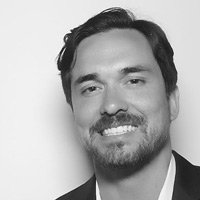Retiring At 30: How To Sensibly Handle An Early Fortune
When you retire early, the pressure is on, because you've got to make your money last for decades. And those coming into sudden money have the added high-stakes challenge of a steep financial learning curve.


Profit and prosper with the best of Kiplinger's advice on investing, taxes, retirement, personal finance and much more. Delivered daily. Enter your email in the box and click Sign Me Up.
You are now subscribed
Your newsletter sign-up was successful
Want to add more newsletters?

Delivered daily
Kiplinger Today
Profit and prosper with the best of Kiplinger's advice on investing, taxes, retirement, personal finance and much more delivered daily. Smart money moves start here.

Sent five days a week
Kiplinger A Step Ahead
Get practical help to make better financial decisions in your everyday life, from spending to savings on top deals.

Delivered daily
Kiplinger Closing Bell
Get today's biggest financial and investing headlines delivered to your inbox every day the U.S. stock market is open.

Sent twice a week
Kiplinger Adviser Intel
Financial pros across the country share best practices and fresh tactics to preserve and grow your wealth.

Delivered weekly
Kiplinger Tax Tips
Trim your federal and state tax bills with practical tax-planning and tax-cutting strategies.

Sent twice a week
Kiplinger Retirement Tips
Your twice-a-week guide to planning and enjoying a financially secure and richly rewarding retirement

Sent bimonthly.
Kiplinger Adviser Angle
Insights for advisers, wealth managers and other financial professionals.

Sent twice a week
Kiplinger Investing Weekly
Your twice-a-week roundup of promising stocks, funds, companies and industries you should consider, ones you should avoid, and why.

Sent weekly for six weeks
Kiplinger Invest for Retirement
Your step-by-step six-part series on how to invest for retirement, from devising a successful strategy to exactly which investments to choose.
In August 2019, Indianapolis Colts' superstar Andrew Luck announced his retirement at the ripe age of 29. He cited the injuries that have stolen his love for the game and the widely known health risks of professional football as his reasons for early retirement. However, there is no question that his $97 million fortune played a big role in allowing him to retire at such a young age.
Though multimillion-dollar fortunes are rare, younger adults coming into money and retiring early has become increasingly more common. A look at households with net worths of at least $25 million showed that “about 9 in 10 investors under 38 attributed their success to ‘inheritance’ and ‘family connections,’”according to a Bloomberg report. “But the same proportion also said ‘hard work’ and ‘running my own business’ played a role.”
Whether their wealth comes from an inheritance or by running an individual business, many millennials are considering early retirement in their 40s, 30s and even 20s. How these financially sound young professionals choose to handle their early fortunes now will directly impact the future of their wealth. Their decisions will make the difference between them growing poorer later in life or creating prosperity that can last for generations.
From just $107.88 $24.99 for Kiplinger Personal Finance
Become a smarter, better informed investor. Subscribe from just $107.88 $24.99, plus get up to 4 Special Issues

Sign up for Kiplinger’s Free Newsletters
Profit and prosper with the best of expert advice on investing, taxes, retirement, personal finance and more - straight to your e-mail.
Profit and prosper with the best of expert advice - straight to your e-mail.
The Emotional Toll
Those with newfound wealth, such as Andrew Luck, face an additional emotional toll when overwhelmed with unsolicited advice, a multitude of potential investment opportunities and loan requests, and financial planning tips from friends and family. It can become difficult to trust people’s motivations.
It’s recommended that the newly wealthy or early retirees avoid making decisions too quickly. This is when people are in the most danger of making emotional decisions that they might regret down the line. By waiting six to nine months before making major financial commitments, such as buying an expensive boat or renovating a home, the newly well-heeled can ensure they make the right decisions.
Who to Trust?
Becoming suddenly wealthy sounds like a dream come true, but it can actually become nightmarish if not managed properly. Many lottery winners report wishing they had never won the jackpot. This occurs for several reasons, including difficulty managing the sudden windfall and changes in the attitudes of those around them.
While how others react to their sudden good fortunes is out of their control, they can learn the strategies that reduce the burden of managing their wealth. Money needs to be invested wisely. The goal is to continue growing assets without taking on extensive risks. Having a team of trusted professionals can ensure the money is managed sensibly.
CERTIFIED FINANCIAL PLANNER™ professionals (CFP®) act in a fiduciary capacity. Fiduciaries accept the responsibility of always acting in their clients' best interests. Not all financial advisers are fiduciaries, but those who carry the CFP® designation always are. It’s wise for newly wealthy individuals to protect their assets by working with a trusted CFP®.
A team of experts is also important because when individuals gain a sudden windfall, such as an inheritance, they have often had no time to build their money management skills. Most people become financially literate over a few decades. During this time, they can afford to make small financial mistakes that serve as learning experiences. A person of modest means who suddenly becomes wealthy faces a far steeper learning curve.
A trusted team can help manage the many requests these newly wealthy receive to lend money, donate to charities or invest in products or business ventures. Some of these solicitations have promise, but many are mistakes or even cons. Evaluating them carefully is vital in protecting new wealth.
Further, holistic financial planning helps shield you from legal liability. Lawsuits, frivolous or otherwise, can drain away savings and investments from the legal fees alone. Hiring an attorney to create trusts and corporations, for example, can prevent opportunists from getting hold of your personal assets.
Plan For The Future, Not Just Now
The primary objective should be building on your current assets to create sustained lifelong financial security for yourself and any heirs. By doing so, you free yourself to use the money as you think best, such as by paying for a loved one's college education or donating to a favorite charity.
The first part of the planning process is getting a clear understanding of what's important. Set specific short- and long-term goals. Then create a plan that effectively manages the five tenets of sound financial planning:
- Expenses
- Investing
- Protection
- Debt Management
- Tax planning
New wealth can be an incredibly positive thing when managed effectively. We've all heard the stories of celebrities and lottery winners who’ve become suddenly rich, only to make the wrong financial decisions with their fortunes and end up broke. Building a strong and comprehensive financial plan can mitigate the risks of this happening.
It is necessary to take these precautionary steps when retiring young to ensure an early fortune stays a fortune. By being proactive, having a thorough understanding of potential pitfalls and working with a trusted team, young retirees can be set up for successful (and longer than usual) retirements.
Profit and prosper with the best of Kiplinger's advice on investing, taxes, retirement, personal finance and much more. Delivered daily. Enter your email in the box and click Sign Me Up.

David Flores Wilson, CFP®, CFA, CEPA is a Managing Partner at Sincerus Advisory, a Registered Investment Adviser providing holistic, fee-only financial planning and wealth management services to families and individuals in the New York Metro area and nationwide.